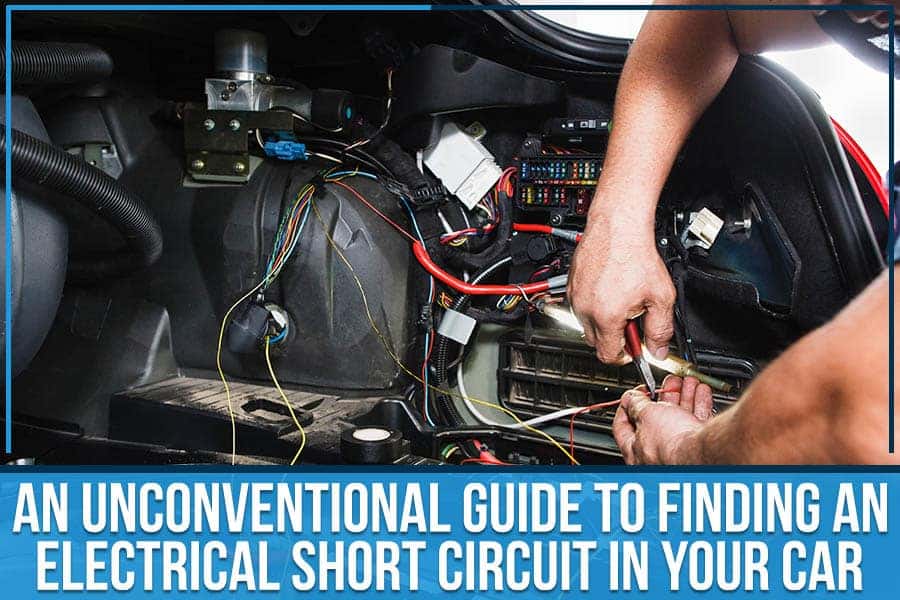Car insurance may cover electrical problems in a vehicle, but it typically depends on the cause of the issue. If the electrical problem is due to a covered scenario like an accident or vandalism, car insurance may provide coverage.
However, if the problem is a result of normal wear and tear, it is unlikely to be covered by insurance. It is important to review your car insurance policy to determine the specific coverage for electrical problems.

Credit: www.scottrobinsonhonda.com
Understanding Car Insurance Coverage
When it comes to car insurance, it’s crucial to understand what your policy covers. Car insurance is designed to protect you financially in case of an accident or damage to your vehicle. However, not all car insurance policies are the same, and coverage can vary depending on the provider and the type of policy you have. In this blog post, we will discuss what car insurance typically covers and whether it includes electrical problems.
What Does Car Insurance Cover?
Car insurance policies typically include coverage for:
- Liability: This coverage helps pay for damages that you cause to other people’s property or injuries in an accident.
- Collision: This coverage helps pay for damages to your vehicle in the event of an accident.
- Comprehensive: This coverage helps pay for damages to your vehicle from sources other than collisions, such as vandalism, theft, or natural disasters.
- Medical payments: This coverage helps pay for medical expenses resulting from an accident.
It’s important to review your policy to understand the specific coverage limits and any additional options you may have chosen.
Unfortunately, when it comes to electrical problems, the answer isn’t always straightforward. Some car insurance policies will cover certain electrical issues, while others may not. In most cases, coverage for electrical problems depends on the cause of the issue.
If the electrical problem is a result of normal wear and tear, it is unlikely to be covered by car insurance. For example, a dead battery that has served you for several years is considered normal wear and tear and will not be covered.
However, if the electrical problem is caused by an accident or a covered incident, such as a fire or theft, your car insurance may provide coverage for the repairs. It’s essential to review your policy and consult with your insurance provider to understand the specific coverage for electrical problems.
Keep in mind that even if your car insurance does cover electrical problems, there may be deductibles and limits on coverage. It’s always a good idea to read your policy carefully and clarify any doubts with your insurance agent.
In conclusion, car insurance coverage for electrical problems can vary based on the cause of the issue and your specific policy. Understanding your coverage is crucial to ensure you’re adequately protected in case of an electrical problem with your vehicle.
Common Types Of Car Insurance Coverage
Car insurance may cover electrical problems in a car if they are not caused by normal wear and tear. For example, a dead battery after four years may not be covered. It is important to check your policy to understand what is covered.
Liability Coverage
Liability coverage is a mandatory type of car insurance that helps protect you financially if you cause an accident that results in bodily injury or property damage to others. This coverage typically does not cover electrical problems with your own vehicle, as it is focused on covering damages to others.
Collision Coverage
Collision coverage is another type of car insurance that helps cover the cost of repairs or replacement if your vehicle is damaged in a collision with another vehicle or object. While collision coverage does not specifically cover electrical problems, it can help cover the cost of repairs if the electrical issue is a result of a covered collision.
Comprehensive Coverage
Comprehensive coverage is a type of car insurance that helps protect against non-collision incidents such as theft, vandalism, fire, and natural disasters. While comprehensive coverage does not specifically cover electrical problems, it can help cover the cost of repairs if the electrical issue is a result of a covered incident.
It’s important to note that car insurance policies and coverage can vary from one insurer to another. Some insurers may offer additional coverage options or endorsements that specifically cover electrical problems. It’s always best to review your policy or consult with your insurance agent to understand what is covered under your specific car insurance policy.
What Is Considered An Electrical Problem?
Car insurance may cover electrical problems in a car if they are not due to normal wear and tear. For example, a dead battery that has been used for several years may not be covered. It is important to check with your insurance provider to understand what electrical issues are included in your coverage.
When it comes to car insurance, understanding what is considered an electrical problem can help you determine whether or not your policy will cover the necessary repairs. Electrical problems in a vehicle typically refer to issues with the electrical system, including the battery, alternator, wiring, and other components that enable the proper functioning of electrical devices in your car. These problems can range from minor issues, such as a blown fuse, to more significant problems like a malfunctioning alternator. Knowing the common signs of electrical issues and the causes behind them can help you identify and address any potential problems.
Common Signs Of Electrical Issues
If you suspect that your car may have an electrical problem, there are several common signs to look out for:
- Dimming or flickering lights: If your headlights, interior lights, or dashboard lights are dimming or flickering, this may indicate a potential electrical issue. Dim lights could be a sign of a failing alternator or weak battery, while flickering lights may suggest loose wiring connections.
- Frequent blown fuses: If you notice that your vehicle’s fuses are blowing more frequently than usual, it could be a sign of an underlying electrical problem. Blown fuses can occur due to various reasons such as faulty wiring or a malfunctioning electrical component.
- Unresponsive electrical devices: If certain electrical devices in your car, such as power windows, radio, or air conditioning, stop working or become unresponsive, this could indicate an issue with the electrical system.
- Strange odors or smoke: If you smell unusual odors, such as burning plastic or electrical smoke, it is essential to address the issue promptly. These odors can be a sign of an electrical problem that could potentially lead to a fire.
- Difficulty starting the car: If you experience difficulty starting your vehicle, it could be due to an electrical problem. This can be caused by a dead battery, faulty starter, or other issues within the electrical system.
Causes Of Electrical Problems
Electrical problems in cars can have various causes, some of which include:
- Normal wear and tear: In most cases, car insurance policies do not cover electrical problems caused by normal wear and tear. This includes issues with the battery, wiring, or other electrical components that naturally deteriorate over time.
- Faulty wiring: Wiring problems, such as frayed or damaged wires, can lead to electrical issues in a vehicle. These problems can be caused by aging, rodents chewing on wires, or improper installation or repairs.
- Defective components: Electrical problems can also arise due to faulty or defective components within the electrical system. This can include issues with the alternator, starter, or other electrical devices.
- Accidental damage: Accidents or incidents that cause physical damage to the electrical system can result in electrical problems. This can occur due to a collision, flooding, or other external factors.
- Improper installations or modifications: If the electrical system has been improperly installed or modified, it can lead to electrical issues. This can happen when aftermarket accessories or upgrades are added without proper knowledge or expertise.
It’s important to note that not all car insurance policies cover electrical problems. While some policies may provide coverage for specific electrical issues, others may exclude them altogether. Reading your policy carefully and consulting with your insurance provider can help you determine whether your coverage includes electrical problems and what specific scenarios are covered.
Does Car Insurance Cover Electrical Problems?
Car insurance may cover electrical problems in certain cases, such as if they were caused by an accident or vandalism. However, coverage for normal wear and tear is unlikely. It is important to review your policy or consult with your insurance provider to understand the specific coverage for electrical issues.
Coverage For Electrical Problems
When it comes to electrical problems with your car, the coverage provided by car insurance policies can vary. While some policies will cover certain electrical issues, others may not. It’s important to review your policy and understand the specific coverage you have.
Exceptions And Exclusions
It’s crucial to be aware of the exceptions and exclusions that may apply to electrical problems with your car. Normal wear and tear is typically not covered, so if you have a dead battery or other electrical issue that resulted from regular usage, it may not be covered by your insurance.
Furthermore, some insurers may have specific exclusions for faulty workmanship or repairs. This means that if the electrical problem in your car is caused by inadequate repairs or poor installation, it may not be covered by your policy.
Understanding Your Policy
To determine whether your car insurance covers electrical problems, it’s important to carefully read and understand your policy. Look for any specific inclusions or exclusions related to electrical issues. If you have any doubts or questions, it’s recommended to reach out to your insurance provider for clarification.
Remember, each insurance company may have different terms and conditions, so what may be covered by one policy may not be covered by another. It’s always a good idea to compare different insurance options and choose the one that best suits your needs and provides comprehensive coverage.
In conclusion, while some car insurance policies may cover certain electrical problems, it’s essential to review your policy and understand the coverage you have. Be aware of any exceptions and exclusions that may apply, and if you have any doubts, reach out to your insurance provider for clarification.
Tips For Dealing With Electrical Problems And Insurance
Car insurance may cover electrical problems in a car if they are caused by a covered scenario such as an accident or vandalism. However, coverage may vary depending on the policy, so it’s important to review your specific insurance plan.
Preventing Electrical Problems
Prevention is always better than cure, and the same applies to electrical problems in your car. To minimize the risk of electrical issues, follow these tips:
- Regularly inspect and clean your car’s battery terminals to prevent corrosion.
- Check your car’s wiring for any signs of damage or wear, such as frayed wires or loose connections.
- Ensure all electrical components are properly installed and securely connected.
- Avoid overloading your car’s electrical system by adding excessive aftermarket accessories.
- Make sure to use the correct fuse and avoid replacing it with a higher amperage one.
Steps To Take When Faced With Electrical Issues
When you encounter electrical problems in your car, it’s crucial to take the right steps to address the issue effectively. Follow these steps:
- Identify the specific electrical problem by checking for common symptoms such as dimming or flickering lights.
- If the problem seems minor, you may attempt to fix it yourself by checking for loose connections or replacing blown fuses.
- If the issue persists or is more complex, it’s recommended to seek the help of a professional auto Electrician who can accurately diagnose and repair the problem.
- Keep records of any repairs or maintenance performed on your car’s electrical system for future reference.
Filing An Insurance Claim For Electrical Problems
When it comes to filing an insurance claim for electrical problems in your car, there are a few things to keep in mind:
- Review your car insurance policy to understand what types of electrical problems are covered.
- Document the details of the electrical issue, including the symptoms and any attempts made to fix it.
- Contact your insurance provider and provide them with all the necessary information about the problem.
- If your insurance policy covers the electrical problem, follow the instructions provided by your insurance company to file a claim.
- Be prepared to provide any required supporting documentation, such as repair invoices or diagnostic reports.
Remember, every insurance policy is different, so it’s essential to review and understand your specific coverage before an electrical problem arises. By taking preventive measures, promptly addressing electrical issues, and following the necessary steps, you can navigate the process of dealing with electrical problems and insurance more effectively.

Credit: bluemountainins.com

Credit: www.shriramgi.com
Frequently Asked Questions For Does Car Insurance Cover Electrical Problems
Does Insurance Cover Electrical Issues In Car?
Car insurance may cover electrical issues in a car if they are not due to normal wear and tear. For example, a dead battery after four years is usually not covered. It is best to check with your insurance provider to understand what is covered under your policy.
Will Insurance Cover Electrical Damage?
Car insurance may cover electrical damage if it is not from normal wear and tear. However, certain wiring issues and faulty workmanship may not be covered by insurers.
When Your Car Has Electrical Problems?
Car insurance typically covers electrical problems if they are not caused by normal wear and tear. For example, a dead battery after four years may not be covered.
Will Insurance Cover Knob And Tube Wiring?
Unfortunately, the coverage for knob and tube wiring varies among insurance providers. Some may offer coverage while others may deny it. If you can find a provider willing to insure your home with knob and tube wiring, you may have to pay higher premiums due to the increased risk of fire and damage.
Conclusion
To determine whether car insurance covers electrical problems, it is important to consider the specific policy. Generally, electrical issues are covered if they are not a result of normal wear and tear. For instance, a dead battery due to normal wear may not be covered.
However, if the electrical problem is caused by an accident or vandalism, car insurance may provide coverage. It is essential to review the policy details and consult with the insurance provider to understand the extent of coverage for electrical problems.

